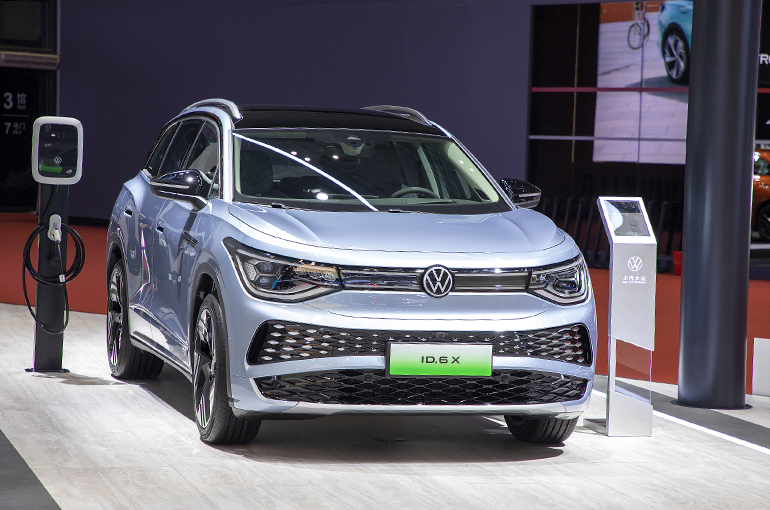 Volkswagen Plans to Launch EVs Tailored for Chinese Market From 2026, China CEO Says
Volkswagen Plans to Launch EVs Tailored for Chinese Market From 2026, China CEO Says(Yicai) Nov. 27 -- German auto giant Volkswagen Group plans to launch new electric vehicle models tailored for the Chinese market from 2026, according to the chief executive officer of Volkswagen Group China.
Volkswagen will strengthen its product development for the Chinese market, Ralf Brandstätter told Yicai. The company’s joint ventures in China will launch four EV models based on its A-class vehicle platform and priced between CNY140,000 and CNY170,000 (USD19,585 and USD23,780), he added.
China classifies sedan car models in A, B, C, and D-classes based on the wheelbase length, which is in line with German standards. A-class models, which include A00, A0, and A-classes, are small sedans, B-class models are mid-size sedans, C-class models are high-end sedans, and D-class ones are luxury sedans.
Wolfsburg-based Volkswagen has three automotive production JVs in China, FAW-Volkswagen Automotive, SAIC-Volkswagen, and Volkswagen Anhui Automotive. The latter is the only one controlled by Volkswagen.
The A-class car market has great growth potential, Brandstätter said. Considering that price competition in the Chinese market will continue for a long time, Volkswagen’s A-class models will be competitive in terms of prices while remaining profitable, he noted.
In addition, Volkswagen will work with Xpeng Motors to develop B-class EV models and launch the new products in 2026 as well. The company plans to launch two products, Brandstätter said.
Volkswagen China Technology will take on key development tasks for the company, including developing a homegrown EV platform for the entry-level market based on Volkswagen’s MEB platform and launching EV models for the Chinese market from 2026 based on the platform, Volkswagen China announced on Nov. 24.
Hefei province-based VCTC is an important link between Volkswagen and its China JVs and local partners, Brandstätter said. With VCTC, Volkswagen can quickly make decisions about all products in China and swiftly launch them, enhancing efficiency, accelerating development, and optimizing the cost structure, he added.
Volkswagen has entered the second phase of localization in the Chinese market, Han Hongming, chief technology officer of Volkswagen China, told Yicai. The first phase was achieving local production, which was based on cooperation with the Chinese units of international part suppliers, while the second one was partnering with Chinese suppliers, he explained.
Volkswagen is building a 450,000-square-meter supplier park in Hefei where about 1,100 local suppliers will provide Volkswagen with a variety of hardware and software solutions to ensure the incorporation of the most advanced technologies and application concepts in the early stages of new product development, gradually improving its products’ localization rate to 100 percent, Han noted.
Volkswagen’s development goal in China is to become one of the top three carmakers and the No. 1 multinational carmaker. By 2030, Volkswagen will launch 30 EV models in China, providing buyers with a wide range of choices, from ordinary to high-end models, Brandstätter predicted.
Volkswagen has remained the leader in the industry in China for years, but local carmaker BYD is not far behind. In the first three quarters, Volkswagen delivered nearly 2.3 million vehicles in China, while BYD sold almost 2.1 million units in the period, including 145,500 units exported, official data showed.
Volkswagen tops the Chinese market in terms of fossil fuel-powered vehicles and can accelerate its investment in NEVs to promote the development of its intelligent connected vehicles to maintain its advantage in China, according to Brandstätter.
Editors: Tang Shihua, Futura Costaglione